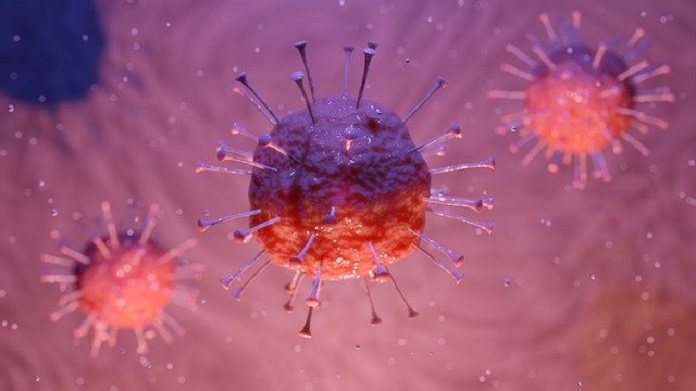Does COVID-19 cause Guillain-Barre Syndrome? A recent study published in Brain describes the findings of a group of researchers who investigated the relationship between the two.
Since late 2019, COVID-19 infections have been associated with a wide range of symptoms and illnesses. COVID-19-related neurological conditions have been a cause for concern, specifically Guillain-Barré syndrome (GBS).
GBS is characterized by a dysregulated immune response that attacks the nerves. Symptoms include tingling or weakness in the limbs, and it is often spread to the whole body causing paralysis. Guillain-Barré syndrome typically occurs a few days or weeks after bacterial or viral infections.
The relationship between COVID-19 and GBS was first questioned in late January 2020 when an asymptomatic COVID-19 patient developed GBS symptoms eight days after their diagnosis. Following this, the onset of GBS after catching COVID-19 was also reported in five other patients.
With these cases, researchers have sought to understand whether COVID-19 triggers the onset of GBS or if it is simply a coincidence. Neuroscientists at University College London conducted a study to assess the link between COVID-19 and Guillain-Barré Syndrome.
The researchers used information from the UK National Immunoglobulin Database to identify the number of GBS hospitalized cases from January 1 to May 31, 2020. They then compared the information to data from previously reported European International GBS Outcome Study cases. Symptoms and characteristics of GBS were analyzed between those diagnosed during the pandemic and those before it. The study also looked at population demographics and differences between individual physical characteristics.
To weigh the association between GBS and COVID-19, the likelihood of illness was broken down into definite COVID-19, probable COVID-19, and non-COVID-19 susceptibility. Guillain-Barré syndrome diagnosis within six weeks of COVID-19 illness was confirmed as a definite link, longer timeframes were deemed as probable.
COVID-19 is likely not a cause of Guillain-Barre Syndrome
The average number of GBS cases reported between 2016 and 2019 was 1098 per year in the UK (these findings were consistent with the numbers found in North America and Europe). The number of COVID-19 infections in March, April, and May 2020 ranged from 4000-6000 per day.
If there is a link between COVID-19 infections and Guillain-Barre Syndrome, then the number of GBS diagnoses should have risen during that time as well. However, the researchers found the opposite to be true—GBS cases were significantly lower during those months than in 2016-19. They also failed to find any correlation between the two within varying regions across the UK.
The statistical analysis concluded that the likelihood of Guillain-Barré syndrome occurrence is 0.016 cases for every 1,000 COVID-19 infections. The study found no probable relationship between COVID-19 and Guillain-Barre Syndrome and no distinct GBS symptoms that could have been caused by COVID-19.
Although the researchers were not able to find a definitive relationship between COVID-19 and Guillain-Barre Syndrome, the cause for very rare cases cannot be overlooked. Future studies are required to examine the reported COVID-19-associated GBS cases, as well as to understand the true impact of COVID-19 on brain health.
References
- Uclnews. (n.d.). No association between COVID-19 and Guillain-Barré syndrome. Retrieved December 20, 2020, from https://www.eurekalert.org/pub_releases/2020-12/ucl-nab121120.php
- Keddie, S., Lunn, M. P., Foster, M., Machado, P. M., Pipis, M., Mousele, C., . . . Paterson, R. W. (n.d.). Epidemiological and cohort study finds no association between COVID-19 and Guillain-Barre syndrome. Brain, 2-32. doi:10.37473/dac/10.1101/2020.07.24.20161471



